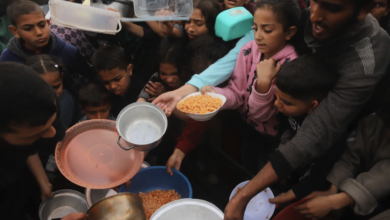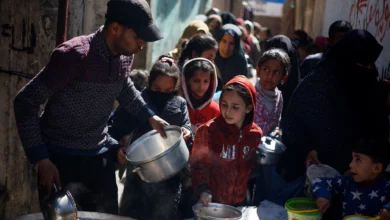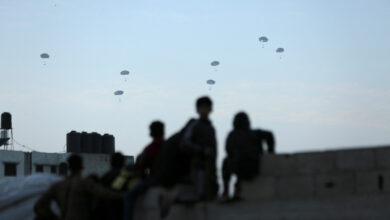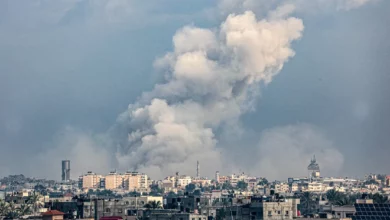Geneva – Ten million people in the Horn of Africa have been hit by the worst drought in 60 years, with some areas on the verge of famine and thousands on the march in search of food and water, the UN said on Tuesday.
A poor rainy season coupled with rising food prices have led to severe food shortages in countries including Djibouti, Ethiopia, Kenya, Somalia and Uganda. Cattle and sheep are dying at higher rates than usual, reaching up to 60 percent of mortality in some areas.
"Over ten million people are affected by the drought in one way or other," said Elisabeth Byrs, spokeswoman for the UN Office for the Coordination of Humanitarian Affairs. "We believe that the drought situation in certain regions is the worst in 60 years," she said. "In some areas the situation is close to that of famine. We are at the emergency stage which precedes that of famine. But the situation can still evolve," she added.
Food prices are soaring with grain prices in some parts of Kenya up to 80 percent higher than the five year average, while in Ethiopia, the consumer price index jumped about 41 percent. As a result, malnutrition rates are also rising, the UN agency said.
In the worst affected areas, they are at more than twice that of the emergency threshold of 15 percent. Eleven districts in Kenya have also reported malnutrition rates above the emergency threshold.
"Drought related displacement and refugee flows are increasing" as a result, said OCHA. About 15,000 Somalis are leaving on average every month in 2011 and seeking refuge in Kenya and Ethiopia. "While conflict has been a fact of life for them for years, it is the drought that has taken them to breaking point," said Byrs.
Recent trends indicate that the situation is worsening, with the UN refugees agency recording over 20,000 Somalis arriving over two weeks at Kenya's overcrowded Dadaab camp, many arriving exhausted and suffering from malnutrition.
"Not only is the number of cases shocking. It's the conditions, it's the state of the people as they arrive," Melissa Fleming, spokeswoman for the UN High Commissioner for Refugees said Friday.
But with Djibouti and Ethiopia also affected by drought, these new arrivals are putting further pressure on their already limited food stocks.
Byrs called for donors to increase financing in order to scale up aid. At the moment, the Djibouti drought appeal has only received 30 percent of funds sought, while appeals for Somalia and Kenya are only about half funded.
"If we do not tackle the situation as soon as possible, it could become worse," said Byrs.




